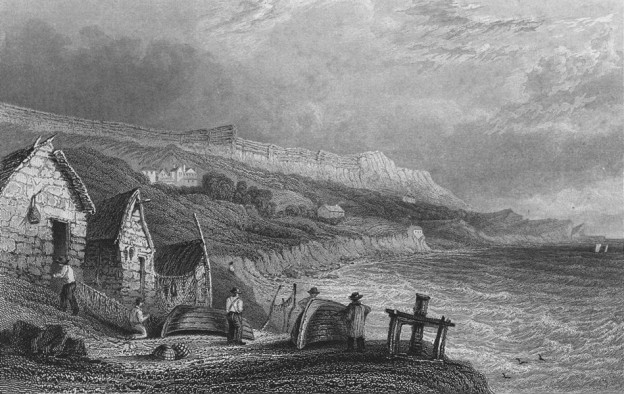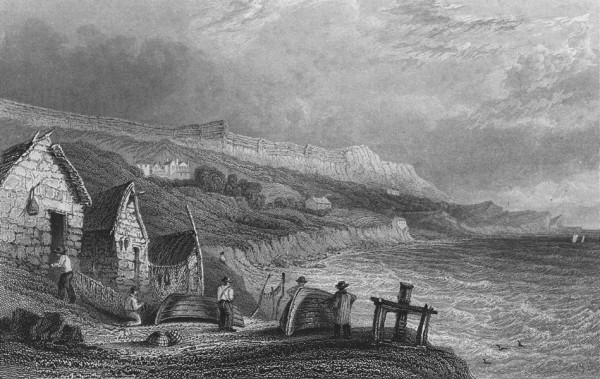On mentioning the subject of Hampshire Fairies to Mr. Landseer, who has not confined his inquiries alone to ‘Sabean Researches,’ he pointed out to my notice the names of ‘Puck-pool,’ and ‘Puck-aster Cove,’ in the Isle of Wight. The former, which is about two miles from Ryde, near the eastern skirts of the grounds belonging to Appley, is now a small, sedgy, and neglected pond, which scarcely more than answers to the line, ‘The nine men’s morrice is filled up with mud;’ and beyond its name has nothing to recall Puck to the imagination. Puck-aster is a romantic fishing-cove on the south side of the island. ‘It may easily be conceived,’ said Mr. Landseer, ‘to have formerly been the scene of such fairy frolics as that merry wanderer of the night boasts of as being his pastime. Its hollows, where dank vapours must in past ages have lingered, are now drained ; and the plantations of Mr. Arnold, and other gentlemen, who have built cottages there, have rendered it a scene at once smiling and wild. But every poetical spectator will see at a glance that it must in days of ypre have been the very place where Robin Goodfellow, ‘in very likeness of a friar’s lantern,’ has laughed at the misled clowns; where those faithless phantoms,’ the wild-fires of autumn, have often sparkled and sported. The name Puck-aster (or Puck a Star) agrees precisely with these local phenomena. ‘When I visited this fairy spot,’ continues Mr. Landseer, ‘recollecting how large a portion of Shakspeare’s life there is of which nothing is known, and reflecting how impossible it is to suppose that any portion of his life could have been inactively spent; my fancy was quite ready to fill up part of the hiatus with a supposition that our great bard was at some time during that period rambling with strolling players, and that in the course of those rambles he had visited the Isle of Wight, and gathered there some of his local fairy lore. Some thirty and odd years ago, when I was there, the island was periodically visited by histrionic strollers from ‘the continent of England.’ (This was an immemorial custom). And in the time of Shakspeare, the Isle was so well wooded, that he might have found in it all his fairy scenery (for it may well be classed under sea-shore and forest scenery); and where else do you find the name Puck stamped on the country itself?’


